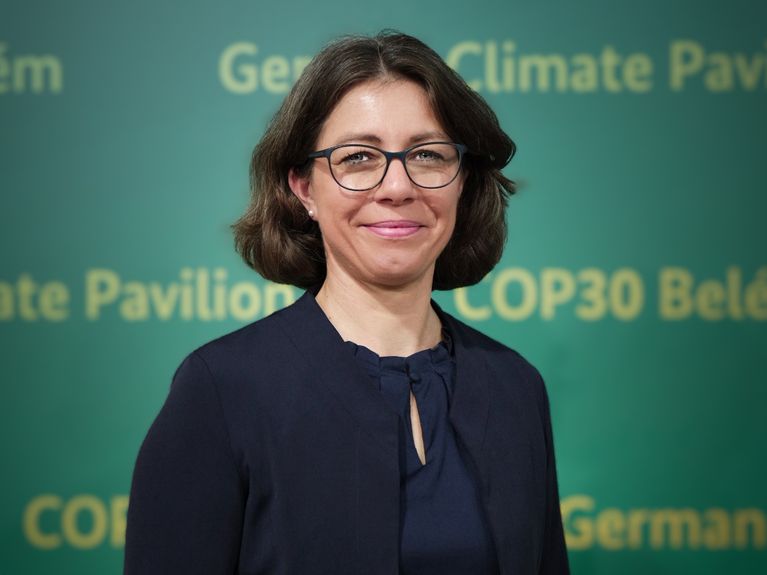Viewpoint
When global resolutions remain vague, regional action gains importance

Katja Matthes is Director of the GEOMAR Helmholtz Centre for Ocean Research Kiel and Coordinator of the dialogue platform Helmholtz KLIMA. Image: Marie Becker, GEOMAR
Although the final declaration was rather vague, COP30 demonstrated that multilateralism can be effective. At the same time, the importance of a united European voice is growing.
The World Climate Conference got off to a promising start, with the Brazilian presidency demonstrating its commitment by establishing the Tropical Forest Fund and launching the “Global Mutirão,” a worldwide initiative. The Blue Zone in Belém was abuzz with activity: Environmental organizations, indigenous groups, civil society representatives and researchers all took the opportunity to contribute their perspectives, demands and scientific evidence to the debates. This diversity of voices was a valuable asset and a striking counterpoint to the political deadlocks that emerged during the negotiations.
The final declaration includes a clear affirmation of the Paris Climate Agreement, which celebrates its tenth anniversary this year. This milestone could – and should – have been an opportunity to critically review the progress made to date and take decisive action. After all, this decade is likely our last chance to limit global warming to an acceptable level. Yet the commitment formulated in the declaration remains abstract. Given the available data and models, concrete roadmaps should have been included.
Take fossil fuels, for example: According to the recently published Global Carbon Budget, the remaining CO₂ budget for the 1.5-degree target will be exhausted in the next four years. A binding roadmap for phasing out coal, oil and gas is indispensable if we are to achieve greenhouse-gas neutrality. Despite a broad alliance of over 80 countries, the proposal ultimately failed to gain consensus. In fact, the word “fossil” doesn’t even appear in the final declaration.
Or the ocean, another example: It absorbs 90 percent of our planet’s excess heat and roughly a quarter of anthropogenic CO₂. Without this enormous natural cooling system, climate change would already be much worse. Nevertheless, the ocean only plays a marginal role in the final document. A clear agenda for marine conservation and monitoring, as well as ocean-based climate solutions, is therefore urgently needed to preserve this vital resource and tap its potential in tackling the climate crisis.
Thus, the final declaration itself is not the defining success of this COP. Yet I see another, quieter success: Despite global crises, the world came together in Belém to negotiate on one of the greatest challenges of our time – and reached a consensus. In substance, this may fall short of the scientific requirements and the expectations of global society. Nevertheless, the fact that 80 countries came together during the negotiations to agree on a roadmap for phasing out fossil fuels and outline concrete next steps shows that multilateralism can work. At the same time, the importance of a united European voice is growing – especially when other players leave the negotiating table.
I sincerely hope that Belém will leave us with a clear insight: that strategic alliances can advance issues that are not bound by the principle of consensus. With its solution-oriented research, the Helmholtz Association can play a pivotal role in this effort. The recent Helmholtz CLIMATE campaign, which marked the tenth anniversary of the Paris Agreement, has impressively demonstrated this. Science can provide guidance, highlight options, and show how they can be implemented. When global resolutions remain vague, evidence-based regional action becomes all the more important.
Readers comments